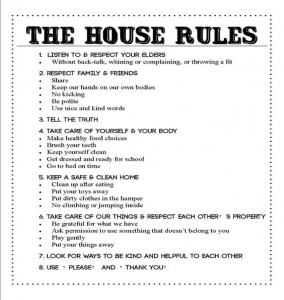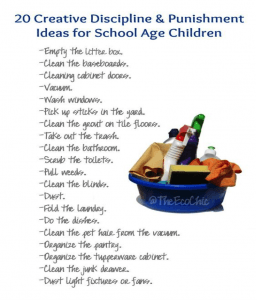Discipline – Why and How

By: Beth Johnson
Discipline – Why and How
Why…
The reason we discipline our children is not so we can have a sense of control over another person, but rather to:
- Guide
- Train
- Protect
I view children as little aliens to this world and the adults in their lives are here to help them learn the ways of humans. They will not know what to do to do or how to interact until they are taught. So the first important step in disciplining is realizing that the minds of children do not come fully loaded with the software of life. Parents, grandparents, aunts, uncles, teachers, coaches, etc., can all be considered software developers for the minds of a child. Like all things that are in the process of developing, patience is needed. Since there is no one perfect way to discipline corrections, tweaks, and, at times, a complete overhaul may occur. Do not allow the process make you feel less than as a parent. Just as there is no one perfect way to discipline there is also no perfect parent. One of my favorite saying about parenting:
Parenting is the one job that once perfected you are unemployed.
So while you’re being patient with your child remember to extend that generosity to yourself as well.
(Need Parenting Advice? We can help with our Parenting Counseling Services)
How…
I like to break the ‘How’ up into 4 Parts
- House Rules
- Rewards/Consequences
- Choices
- Unconditional Love
House Rules
Create a list of your house rules. I prefer to have the family do this all together. This allows the children to have their input, which increases chances of compliance. The house rules also sets the expectation clearly to the children. This goes back to the “little alien” concept; they will not know what is expected until you tell them. It’s not fair to assume a child will know and then punish them when they prove they do not.
Display the house rules in a room that is accessible to everyone. Review the rules regularly until you the children can recite the rules without needing to look at the rules chart.
Update house rules as needed. Every family is different and specific rules may be needed in one home that is not needed in another. For example, if a child struggles with using an inside voice that may be a specific rule that is on the house rules list.
Here is an example of House Rules found on Pinterest:

Rewards/Consequences
The next step is to establish rewards and consequences. One of the common questions I get from parents is “Why should I reward my child for doing what (s)he’s suppose to do?” I completely understand and agree. The trick is changing the definition of reward. A reward is something gained by meeting an expectation. This means that a reward can be anything the child enjoys doing:
- Watching a show
- Playing a video game
- Screen time
- Playing with toys (Yes, toys, any toy)
- Time with friends
- Going to the park
- Riding his bike
- Painting
- Playing sports
Essentially, any and all things that are given freely to a child can be earned as a reward. This instills a sense of ownership of the child for his/her actions. Plus it eliminates the process of the parent “taking away” something, which only causes the child to view the parent as the “bad guy.”
Hopefully the desire to gain the rewards will be enough incentive for the child to uphold the house rules, but sometimes consequences need to be implemented as well.
Here is a list of consequences found on Pinterest:

Consequences should be in addition to the child’s household responsibilities.
Choices
Once the Rules and Rewards/Consequences are established the power of choices is implemented. When the child begins to misbehave present the choice to follow the rule and receive the reward or not follow the rule and not receive the reward. Allow a moment for the child to think about what (s)he wants to do. Once the child chooses it is of the utmost importance to follow through. If the child makes a good choice the reward will encourage further good choices. If the child makes a bad choice the lack of the reward or earning of the consequence will instill a desire to change the behavior in the future.
If a Bad Choices is Made Avoid:
- Giving “I told you so” speeches
- Giving in because the child then chooses to change the behavior after the initial choice to not follow the rules was made
The natural consequence of not following the rules will speak for itself. Hearing a “I told you so” speech is like rubbing salt on a wound. Conversely, express empathy to the child. Share that you get upset too when you make a bad a choice.
If the child begins to act accordingly after a lack of reward or consequence is earned do not give in…I repeat DO NOT GIVE IN. Empathize with him and remind him that tomorrow is another day and he can make a better choice tomorrow.
Unconditional Love
No matter whether a child choses to follow the rules or not it is imperative that (s)he always feels loved. Create a distinct separation between behavior and love. If a child feel (s)he has to earn love (s)he’ll eventually grow weary and give up, thus creating a distance between parent and child. Unconditional love relays the message that the child cannot do anything that would make him/her to be loved less, nor can (s)he do anything to be loved more. Loving the child freely allows room for growth without fear of abandonment.
Discipline is challenging and will vary among households. Remember to discipline out of love and allow choices to speak for them selves.
~Robin
